Redesigned DT Swiss 350 hubs are lighter but just as 'dependable' - and still come in a rim-brake version
Legendary road hubs updated to include 36t ratchet and redesigned hub shell and axle

DT Swiss has released an updated version of its renowned 350 road and gravel hub.
The redesign of both the straight-pull and classic hubs promises the same reliability of the outgoing models but in a lighter package.
While hubs aren’t seen as the most glamorous of components - DT Swiss’s marketing copy describes the new model as a “dependable road mate” - the 350 is something of an icon, with its black-and-white hub shell design recognisable to cyclists the world over.
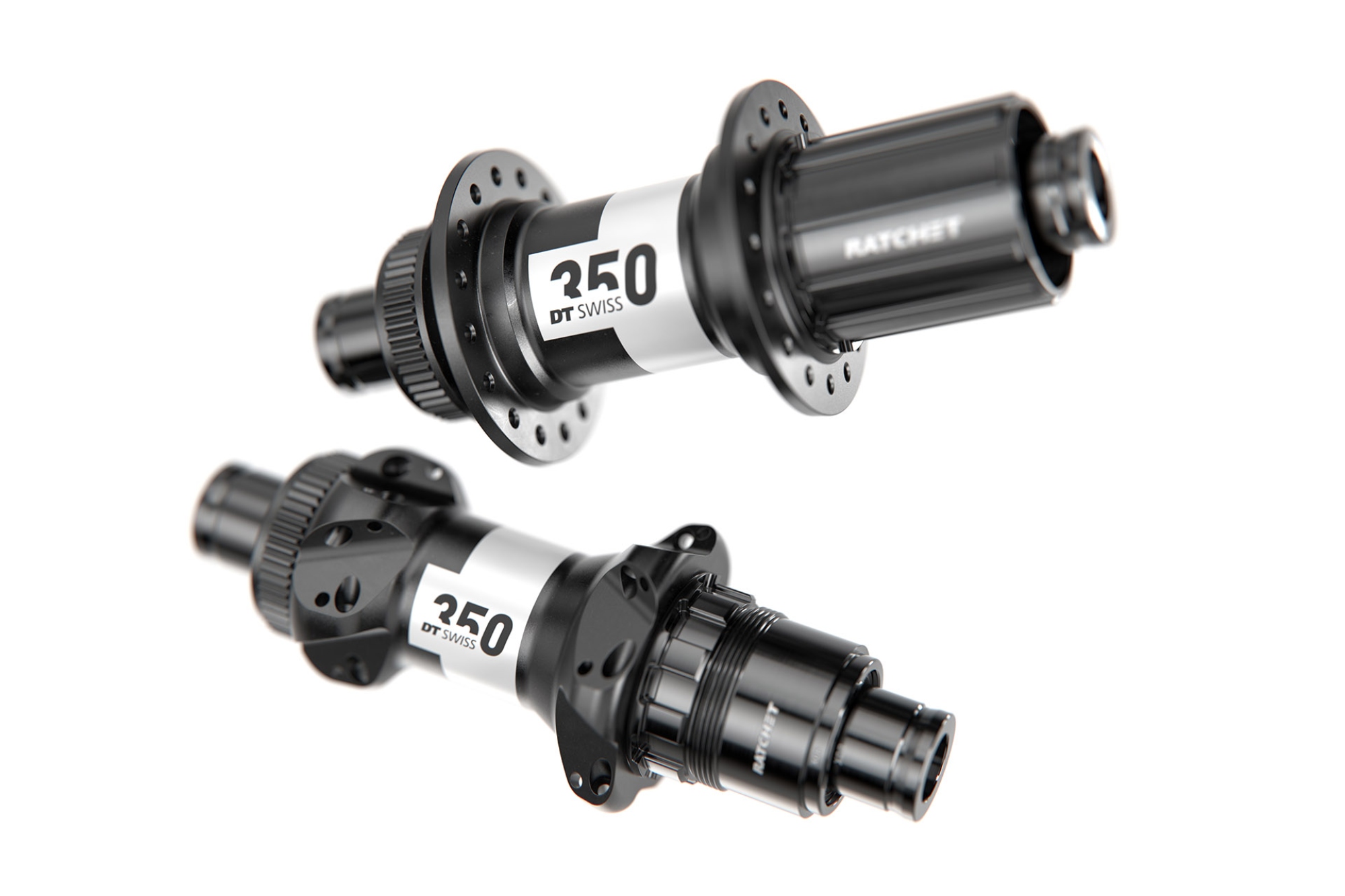
Like its predecessor, the latest 350 hub is built around dual concepts - dependable performance and ease of maintenance.
The former is achieved, DT Swiss says, thanks to its ratchet system that ensures a “reliable power transmission”. The Swiss brand uses star ratchets rather than pawls, with each tooth engaging simultaneously. The result, it says, is an even distribution of forces across a large contact surface, as opposed to the smaller engagement surfaces of pawls, hence greater reliability.
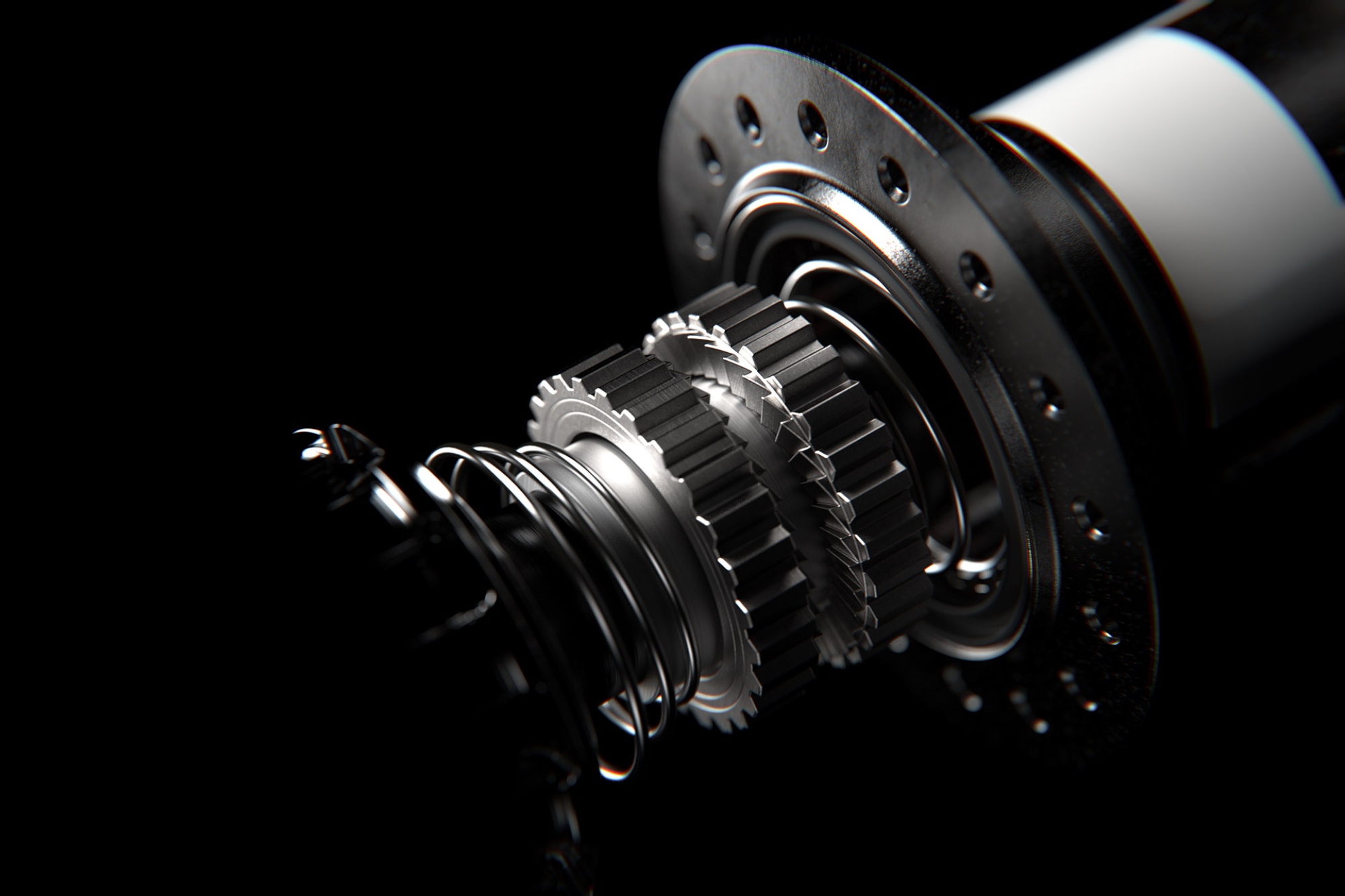
The new 350s use a 36t SL (Super Light) ratchet, which equates to a 10 degree engagement angle. However, a 54t option, which will set you back $117, is available for those requiring ‘quicker’ engagement.
As DT Swiss explains, “the engagement angle is the maximum degree that the freehub body can rotate until the teeth of the freehub system engage and accelerate the hub”. To find the angle you divide 360 degrees by the number of engagement points.
The latest race content, interviews, features, reviews and expert buying guides, direct to your inbox!
Why does engagement angle matter? The idle distance your crank turns before the freehub mechanism engages, and accelerates the wheel as a result, is known as backlash. It’s impacted by crank length, gear ratio and engagement angle. Smaller gear ratios increase the maximum idle distance but backlash can be reduced, and quicker acceleration gained, by the engagement angle - helpful with today’s low geared gravel and all-road bikes.
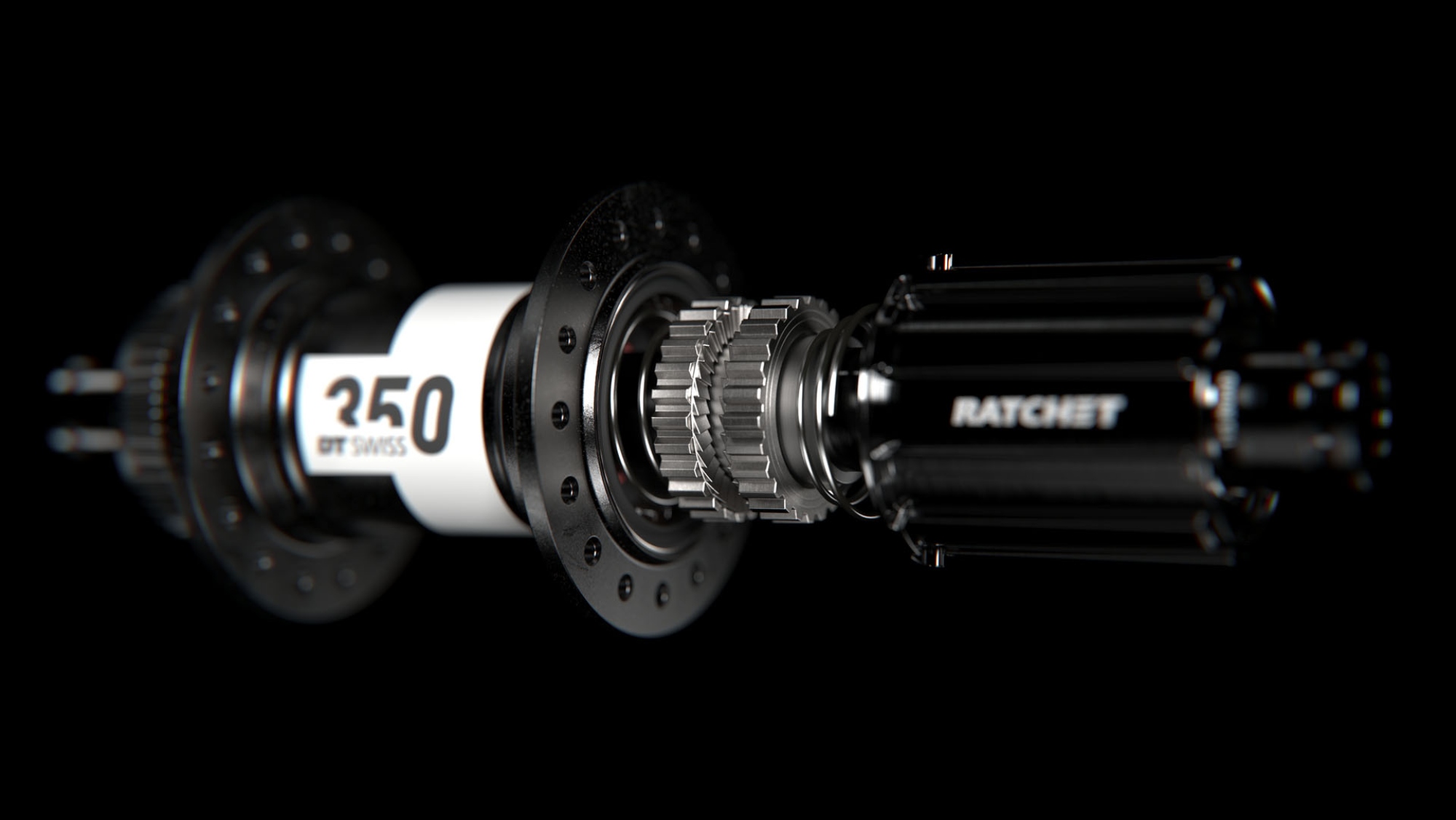
As for maintenance, the 350 uses DT Swiss’ ‘no-tool- concept, which is built around the hub’s ‘plug-in’ construction, with the ratchets and freehub sliding onto the axle. Ostensibly it allows you to swap out the freehub and change the ratchets without the need for any special tools. To aid this the end caps have been updated to offer better grip when disassembling the hub; DT Swiss says converting to a different drivechain standard can be achieved “within seconds”.
Both the aluminium hub shell and the axle have been redesigned to make the new 350 hub lighter than the outgoing model. DT Swiss says the straight pull 350 is now 10% lighter while the classic hub, which works with j-bend spokes, has seen a 5% reduction in weight. The straight pull front hub now has a claimed weight of 106g with the rear hub weighing 219g, both in their lightest configurations. The classic hubs are a tad heavier as expected, with claimed weights of 139g and 244g, again in their lightest option
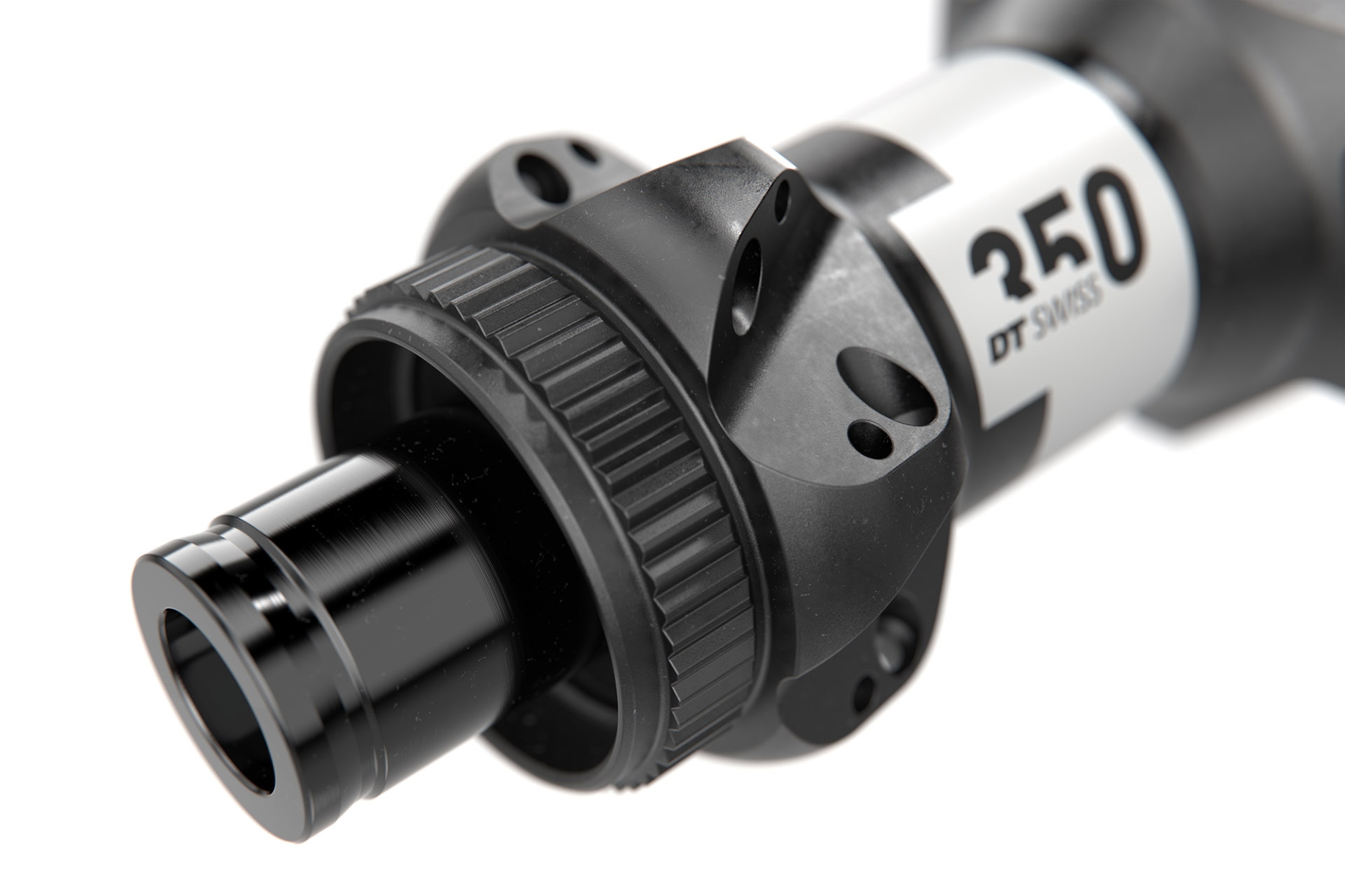
As for those options, the 350 is offered with both QR (5/100mm and 5/130mm) and thru-axle standards (12/100mm and 12/142mm) and Shimano Road, SRAM XDR and Campagnolo N3W freehubs.
Spoke count choices are 20 and 24 on the straight pull model and 20,24, 28 and 32 on the classic hub. Fans of rim brakes will be pleased that both hubs are offered as a non-disc version to sit alongside the centerlock disc option.
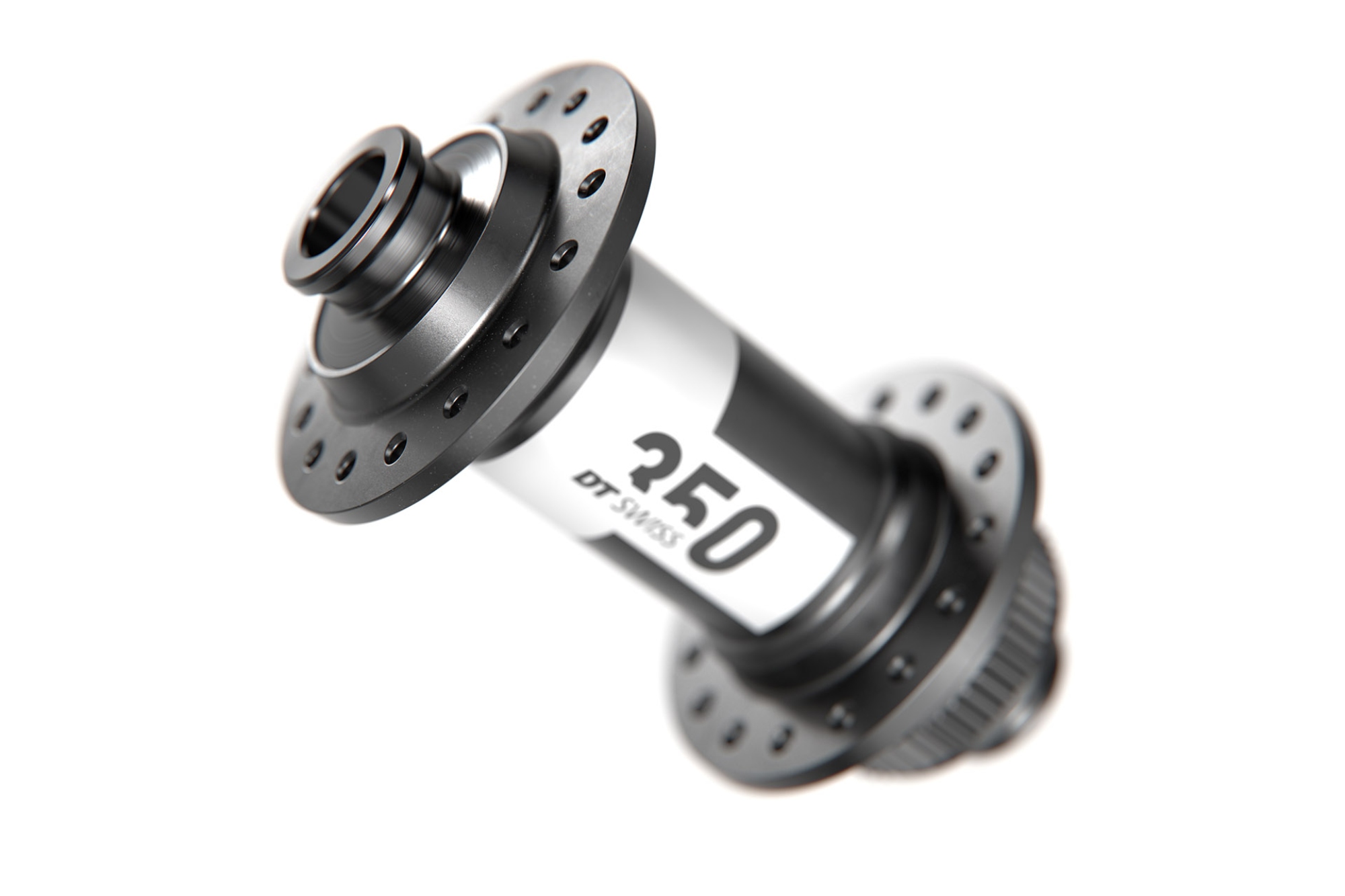
Prices start from $112.90 / £54.99 for the front hub and $284.90 / £159.99 for the rear.
For more information visit dtswiss.com
Luke Friend has worked as a writer, editor and copywriter for over twenty five years. Across books, magazines and websites, he's covered a broad range of topics for a range of clients including Major League Baseball, Golf Digest, the National Trust and the NHS. He has an MA in Professional Writing from Falmouth University and is a qualified bicycle mechanic. He has been a cycling enthusiast from an early age, partly due to watching the Tour de France on TV. He's a keen follower of bike racing to this day as well as a regular road and gravel rider.